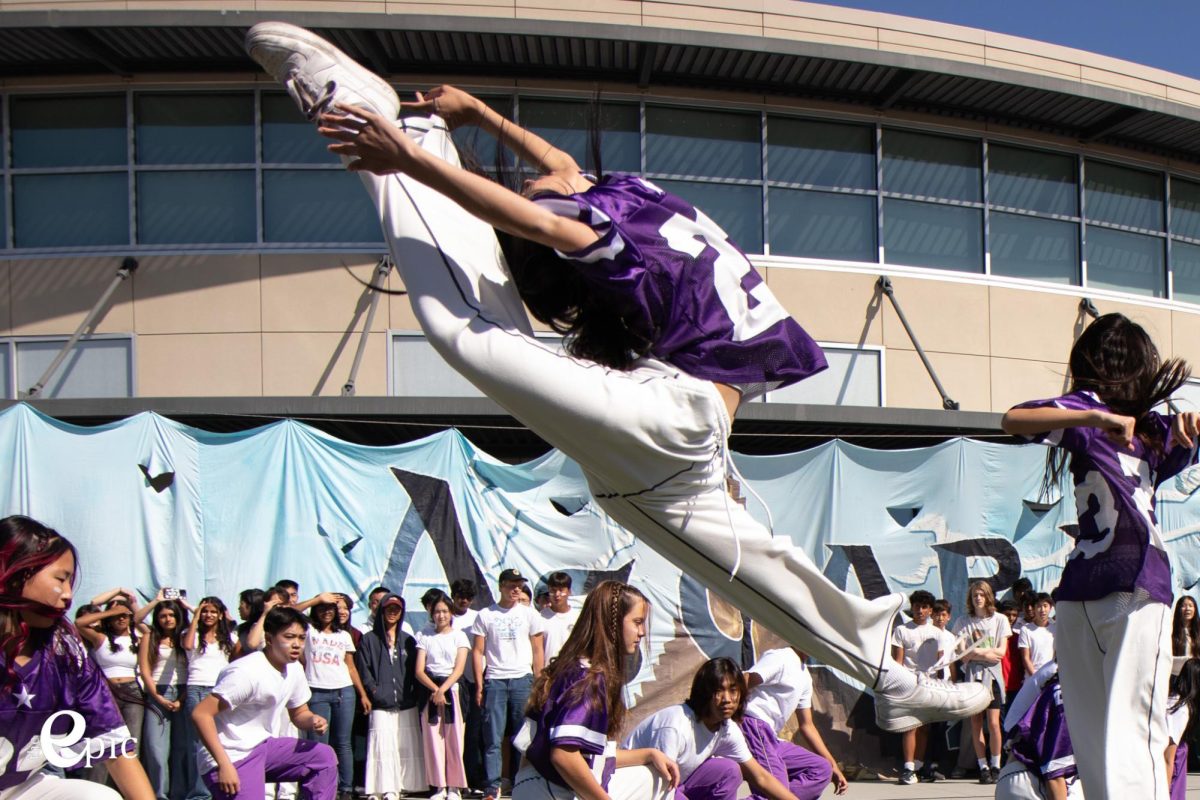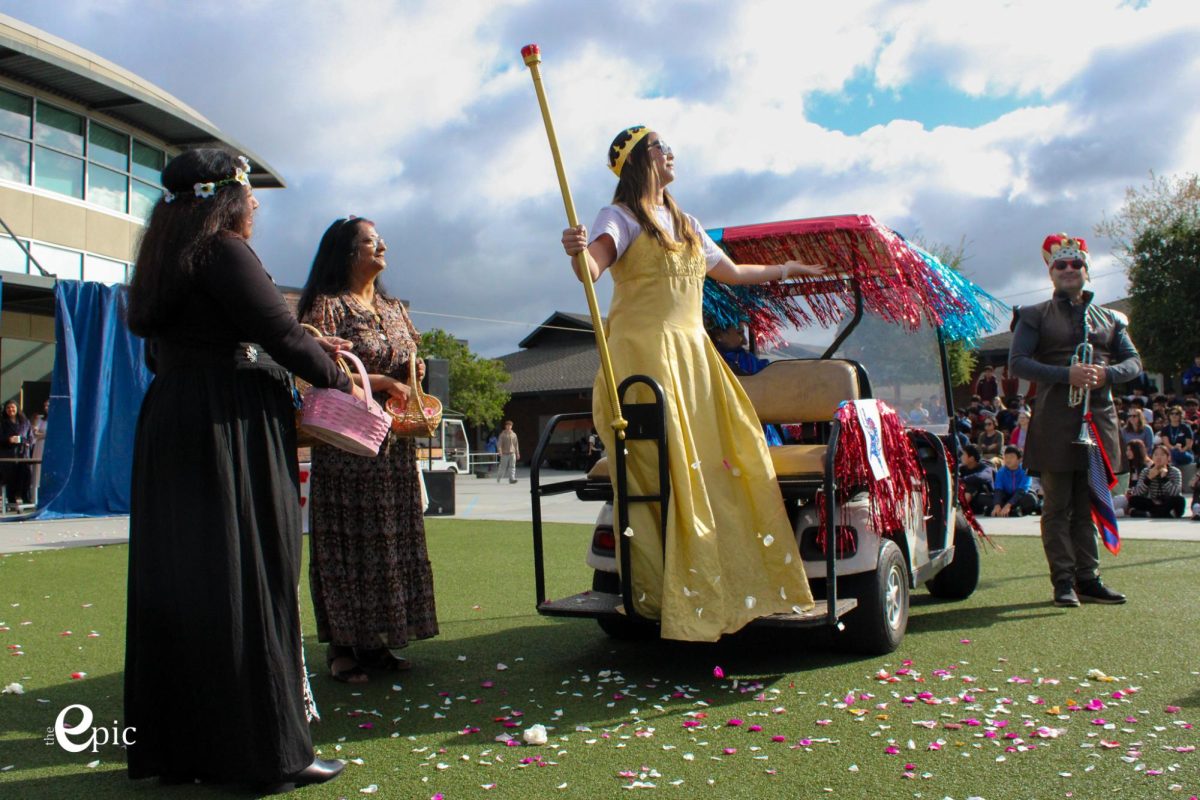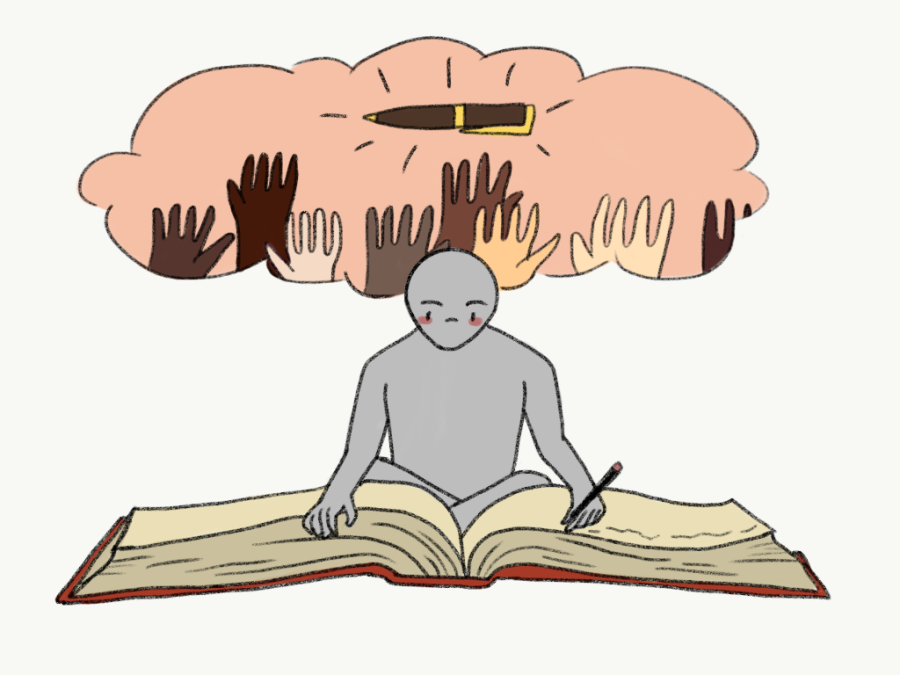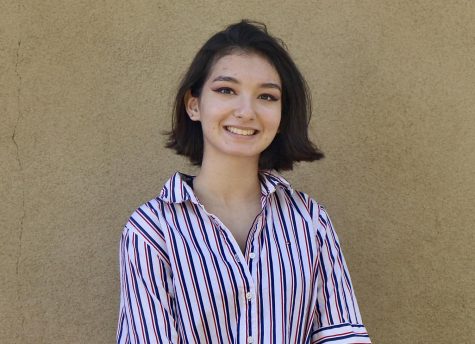Leaving European Literature with style
Story and Style to take the place of European Literature
Graphic illustration by Alara Dasdan
Diversity in writing is emphasized by the new course.
October 7, 2020
The Lynbrook English department recently developed a new curriculum to replace the European Literature class offered for seniors, set to take effect in the 2021-2022 school year. The proposed curriculum would shift the focus from European Literature to writing elements, and the course will be renamed Story and Style.
The course will emphasize the development of skills needed to critically examine different mediums of communication within and beyond literature, such as documentaries, films, poetry and philosophy, and offer students opportunities to apply their skills. It aims to expand the focus of study beyond white Europeans through exposure to perspectives of authors from different cultural backgrounds, with an emphasis on works that reflect issues affecting students in the present day. In addition, the English department plans to include more works from people of color, women and members of the LGBTQ community.
European Literature teacher Kristy Harlin states that the main reason for the curriculum change is to promote inclusivity in writing along with developing skills cultivated from more traditional English classes.
“I think the connection between inclusivity and writing elements comes in the form of diverse perspectives,” Harlin said. “It’s about how a story is told and it’s about who is telling that story. We need to read stories from people we can relate to and also from people who share a different perspective from us.”
The change was officially proposed during the 2019-2020 school year, during discussions aimed to modify the Euro-centric curriculum due to a changing socio-political climate. The recent resurgence of the Black Lives Matter movement confirmed the necessity of the change.
“I think the process started long before what happened this summer,” European Literature teacher Stacey McCown said. “The course’s change has been going on for years, and it just built to a climax now.”
The English Department looked into possible senior English courses across the district to find a replacement that would fit the new goals and ambitions of a new course and decided on Story on Style.
“We felt that Story and Style best aligned with what we wanted the senior course to be like and liked the fact that the curriculum change allowed an increasingly diverse range of voices,” Harlin said.
After being approved by the English Department staff, the tentative course was sent to administrators to follow course change protocols. Student input was required for approval, so teachers surveyed seniors and underclassmen to gauge interest. Students in the Class of 2020 were asked which units and books they preferred learning about the most in their literature classes over the years, and the underclassmen were asked what literary themes they would like to see and which regions of the world they’d like to read more books from. While many students wished to read the classics previously covered by the European Literature course, the majority of students supported the decision to move away from a Euro-centric course.
Senior Andrew Merriam believes that having a curriculum more representative of the diverse Lynbrook population will allow students to find a deeper connection.
“There’s a cultural impact here that European Lit might have on white people, but not others,” Merriam said. “If we switch that to having a better impact on Lynbrook’s community, then we get more [benefit] overall.”
In addition to promoting diversity, the course aims to educate seniors about current social issues and prepare students for the changing world they live in today before they graduate. Analysis of stories will be connected back to the real world, encouraging students to think critically about the issues they may face in the real world similarly to how they may analyze a story.
McCown hopes that the curriculum will prepare seniors for critical political engagement.
“We’re very aware that you are just about adults—some of you are already 18,” McCown said. “You’re going to be citizens of the world out there, voting, participating in all these ways than an adult does. Some of the things that we would approach in the class, like current events and what’s going on in the world today, would be at that level for you.”


































































